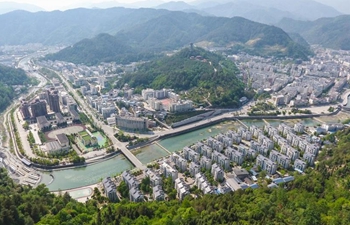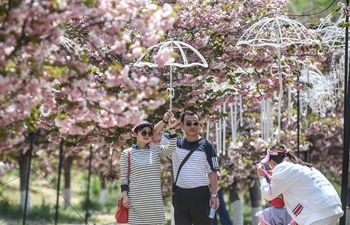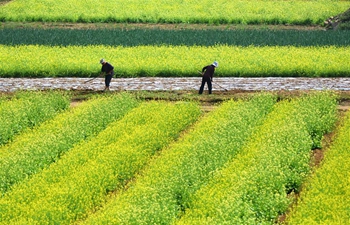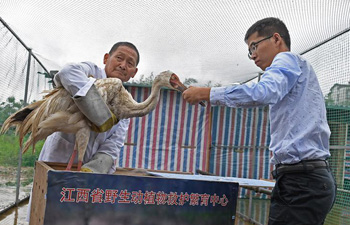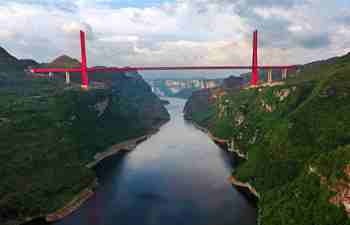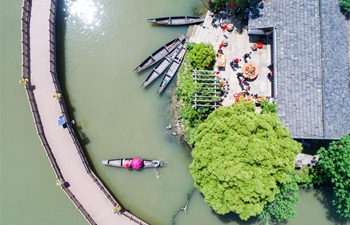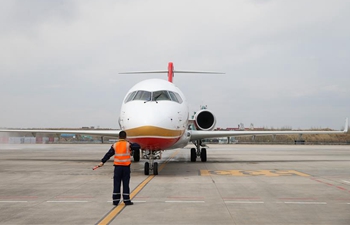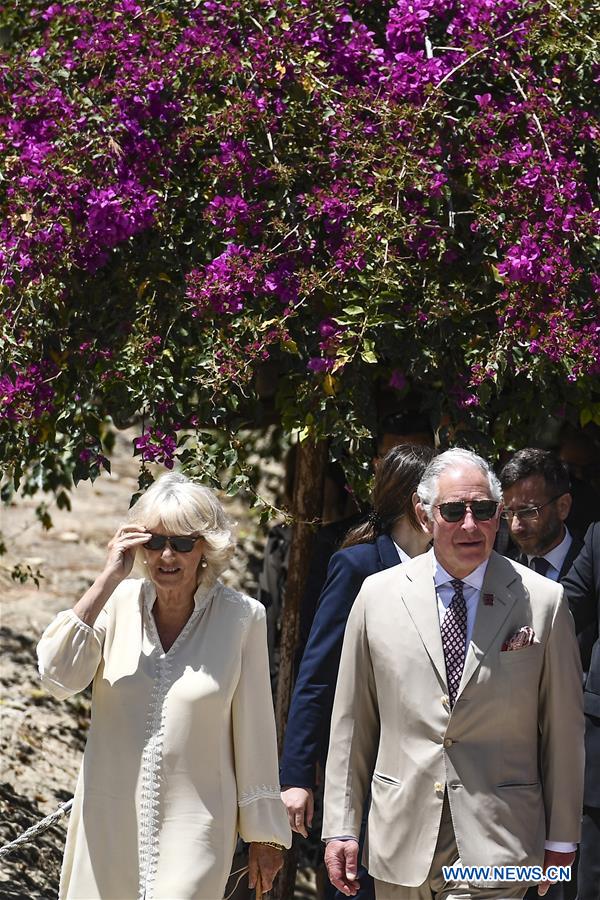
Britain's Prince Charles (R), Prince of Wales, and his wife Camilla, Duchess of Cornwall, visit the Knossos Archaeological Site in Crete, Greece, on May 11, 2018. They arrived in Athens on Wednesday on a three-day official visit to Greece, the birthplace of Prince Charles' father. (Xinhua/Aris Messinis)
ATHENS, May 11 (Xinhua) -- Britain's Prince Charles and Duchess of Cornwall Camilla departed from Crete island on Friday, wrapping up a historic three-day visit to Greece.
Prince Charles is the first heir to the British throne paying an official visit to Greece, the birthplace of his father, although he has visited the country privately in the past.
After talks with Greek political leaders on Wednesday and a series of events in Athens on Thursday, the prince and his wife flew to Crete, where they visited the archaeological site of Knossos, a refugee shelter and attended a cultural event before leaving Greece.
Greek Culture Minister Lydia Koniordou welcomed the royal couple at Knossos, where the Minoan civilization flourished from 2,600 to 1,100 BC. The visit was broadcast live on Greek national broadcaster ERT.
Local officials expressed hope that the images of the royal couple touring the site and a nearby winery will help further boost Greek tourism, one of the pillars of Greek economy which showed resilience during the eight-year Greek debt crisis.
At the city port of Herakleion Prince Charles and Duchess Camilla also met refugees benefitting from an accommodation program run by UNHCR, the UN Refugee Agency, and funded by the EU.
The meeting with the refugees and the staff working on the ESTIA project, which provides 24,500 apartments nationwide, was organized to underline that Greece has been in the past three years also at the forefront of the refugee crisis.
More than 45,000 refugees across Greece have benefitted from the project since it was launched in early 2016, including 800 people on Crete island, according to UNHCR.
Over one million refugees and migrants have landed in Greece since early 2015 and about 60,000 remain stranded in the country after the closure of the Balkan route to central Europe in the winter of 2016.




